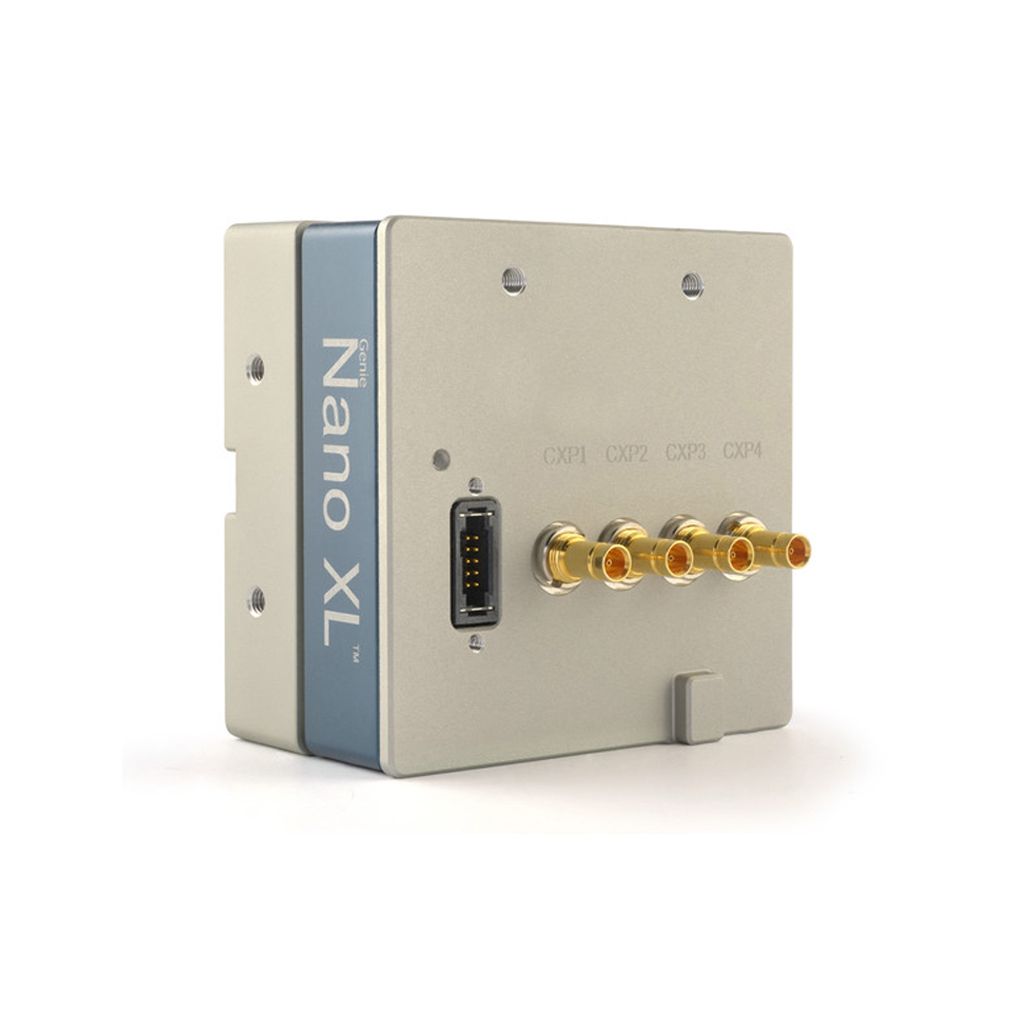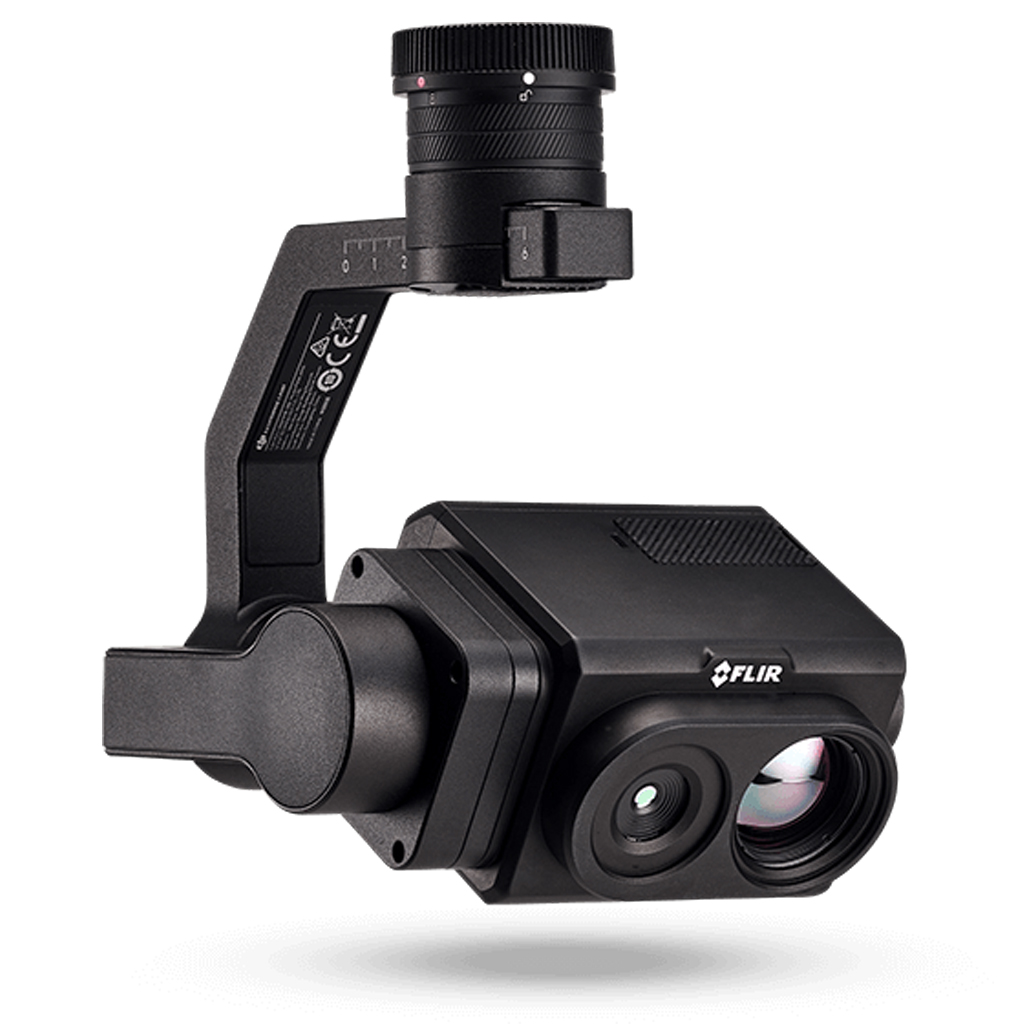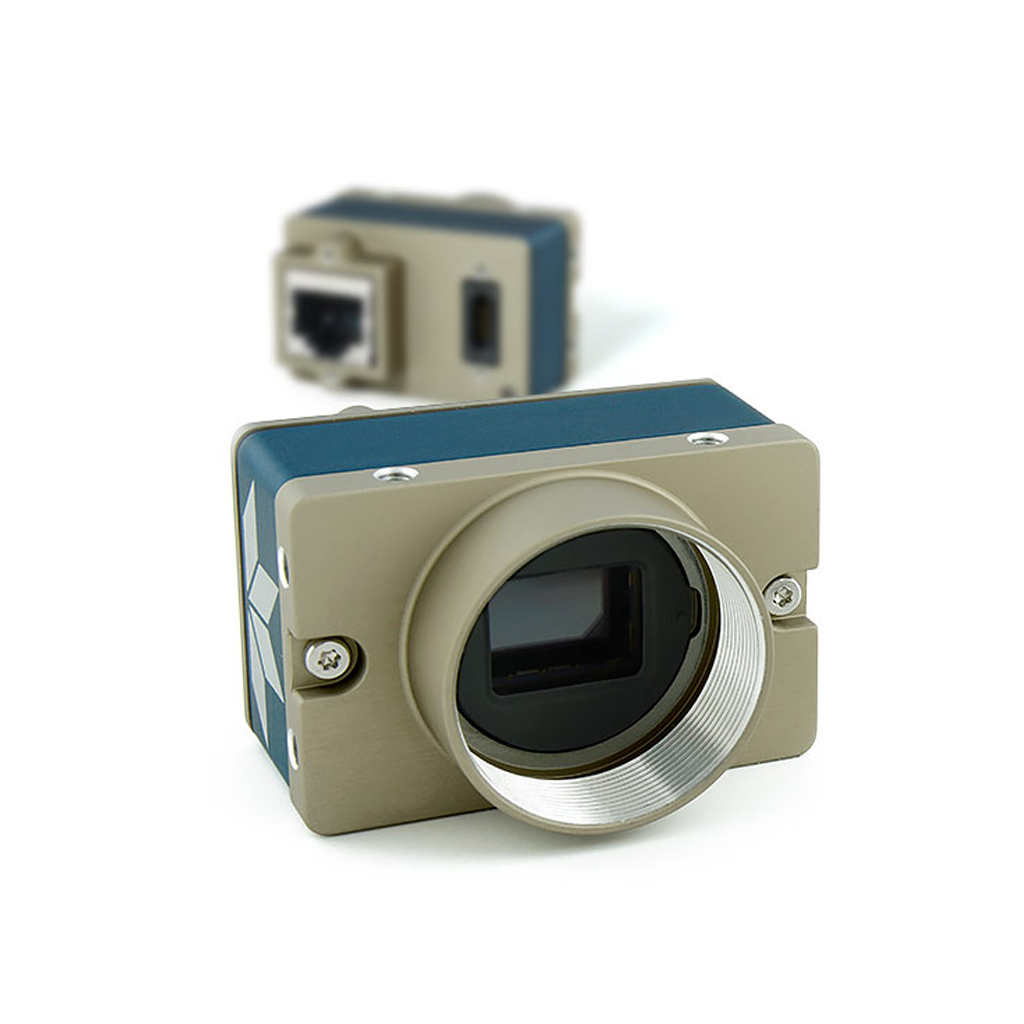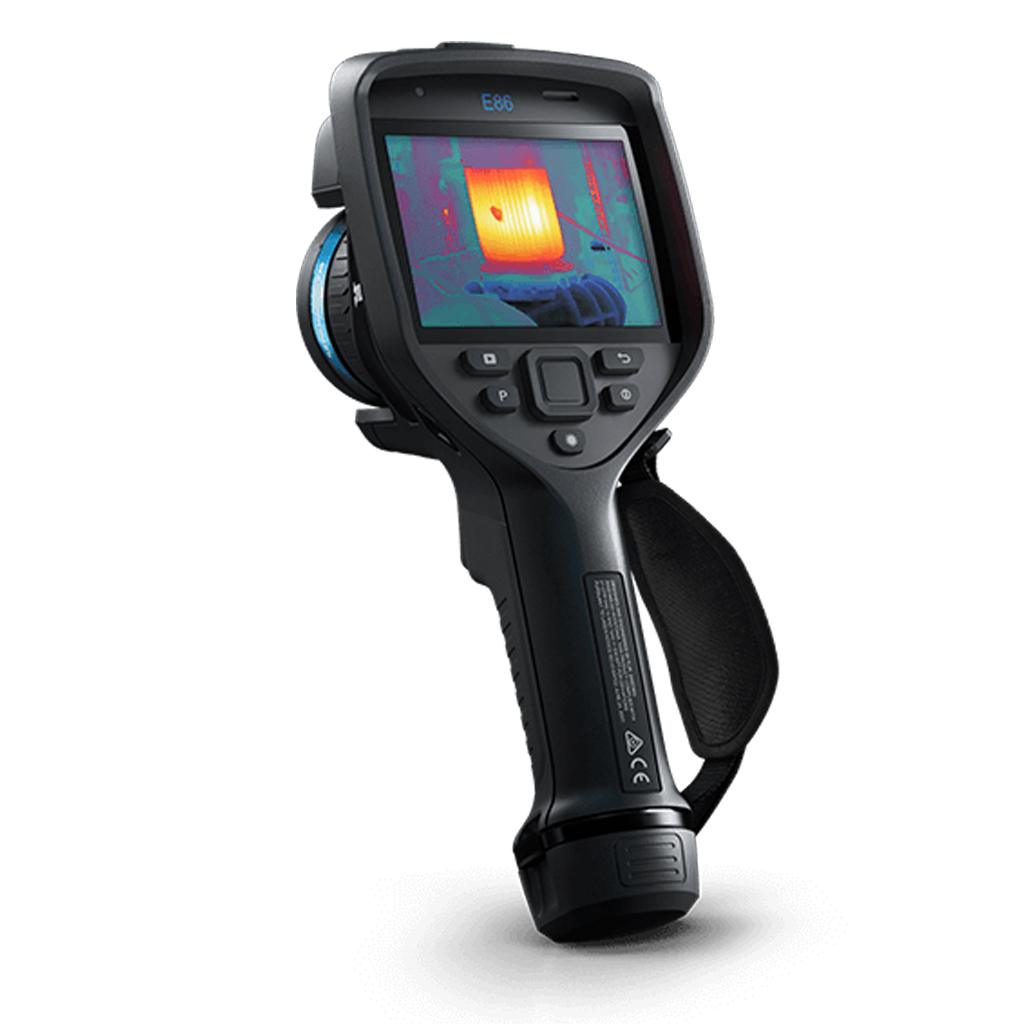Featured Information

T865 42°
SPECIFICATIONS
- IR Resolution : 640 × 480 pixels
- Thermal Sensitivity/NETD : <30 mK @ 30°C (42° lens)
- Accuracy : ±1°C (±1.8°F): 5 to 100°C (41 to 212°F), ±1%: 100 to 120°C (212 to 248°F), ±2°C (±3.6°F): -40 to 100°C (-40 to 212°F), ±2%: 100 to 650°C (212 to 1202°F), 300 to 2000°C (572 to 3632°F), ±3%: 1800 to 2000°C (3272 to 3632°F) with 42° lens
- Digital Camera : 5 MP, with built-in LED photo/video lamp
- Display : 4 inches, 640 × 480 pixel touchscreen LCD with auto-rotation
- Storage Media : Removable SD card
- Non-radiometric IR Video Streaming : H.264 or MPEG-4 over Wi-Fi MJPEG over UVC or Wi-Fi
- Picture-in-Picture : Resizable and movable
- Radiometric IR Video Recording : Real-time radiometric recording (.csq)
- Radiometric IR Video Streaming : Yes, over UVC
- Spectral Range : 7.5 - 14.0 µm
- Thermal Sensitivity/NETD : <30 mK @ 30°C (42° lens)
- UltraMax : Quadruples pixel count; activated in menu and processed in FLIR reporting software.
- Viewfinder : Yes
USER INTERFACE
- Display : 4 inches, 640 × 480 pixel touchscreen LCD with auto-rotation
- Text : Predefined list or touchscreen keyboard
- Voice : 60 sec. recording added to still images or video via built-in mic (has speaker) or via Bluetooth
ENVIRONMENTAL & CERTIFICATIONS
- Operating Temperature Range : -15°C to 50°C (5°F to 122°F)
- Safety : EN/UL/CSA/PSE 60950-1
- Storage Temperature Range : -40°C to 70°C (-40°F to 158°F)
IMAGING & OPTICAL
- Color Palettes : Iron, Rainbow, Rainbow HC, White hot, Black hot, Arctic, Lava
- Detector Type and Pitch : Uncooled microbolometer, 12 µm
- Digital Camera : 5 MP, with built-in LED photo/video lamp
- Digital Zoom : 1-8x continuous
- F-Number : 1.1
- Focus : Continuous with laser distance meter (LDM), one-shot LDM, one-shot contrast, manual
- Image Frequency : 30 Hz
- IR Resolution : 640 × 480 pixels
- Lens Identification : Automatic
- Minimum Focus Distance : 0.15 m
MEASUREMENT & ANALYSIS
- Accuracy : ±1°C (±1.8°F): 5 to 100°C (41 to 212°F), ±1%: 100 to 120°C (212 to 248°F), ±2°C (±3.6°F): -40 to 100°C (-40 to 212°F), ±2%: 100 to 650°C (212 to 1202°F), 300 to 2000°C (572 to 3632°F), ±3%: 1800 to 2000°C (3272 to 3632°F) with 42° lens
- Measurement Presets : No measurement, center spot, hot spot, cold spot, User Preset 1, User Preset 2
- Object Temperature Range : -40°C to 120°C (-40°F to 248°F); 0°C to 650°C (32°F to 1202°F) 300°C to 2000°C (572°F to 3632°F)
- Spot Meter : 10 ea. in live mode
POWER
- Battery Operating Time : Approx. 4 hours at 25°C (77°F) ambient temperature and typical use
- Battery Type : Li-ion battery, charged in camera or on separate charger
GENERAL
- Compatible with FLIR Software : FLIR Thermal Studio Suite, FLIR Route Creator, FLIR Ignite, FLIR Research Studio, FLIR Atlas SDK
- Laser Pointer : Yes
- Packaging : Infrared camera with lens, small viewfinder eyecup, 2 batteries, battery charger, hard transport case, lanyards, front lens cap, power supplies, printed documentation, SD card (8 GB), cables (USB 2.0 A to USB Type-C, USB Type-C to HDMI, USB Type-C to USB Type-C), License card: FLIR Thermal Studio Pro (3 month subscription) + FLIR Route Creator Plugin for Thermal Studio Pro (3 month subscription)

T865 42°
The FLIR T865 thermal imaging camera is a non-contact inspection tool with a 180° rotating optical block that allows users to safely and comfortably assess the condition of critical electrical and mechanical equipment in utility and manufacturing applications. With advanced features including unmatched temperature measurements down to -40°C, accuracy as good as ±1°C / ±1%, 1-Touch Level/Span contrast enhancement, and laser-assisted autofocus, you'll get highly accurate temperature measurements every time. Pair the T865 with a 6° FOV IR lens to perform inspections on small targets from long distances. The on-board Inspection Route system helps you record temperature data and imagery in a logical sequence for faster troubleshooting and repair. Adding a FLIR T865 camera to a condition monitoring/predictive maintenance program can help reduce maintenance costs, improve system efficiency and reliability, and prevent downtime due to outages.
















